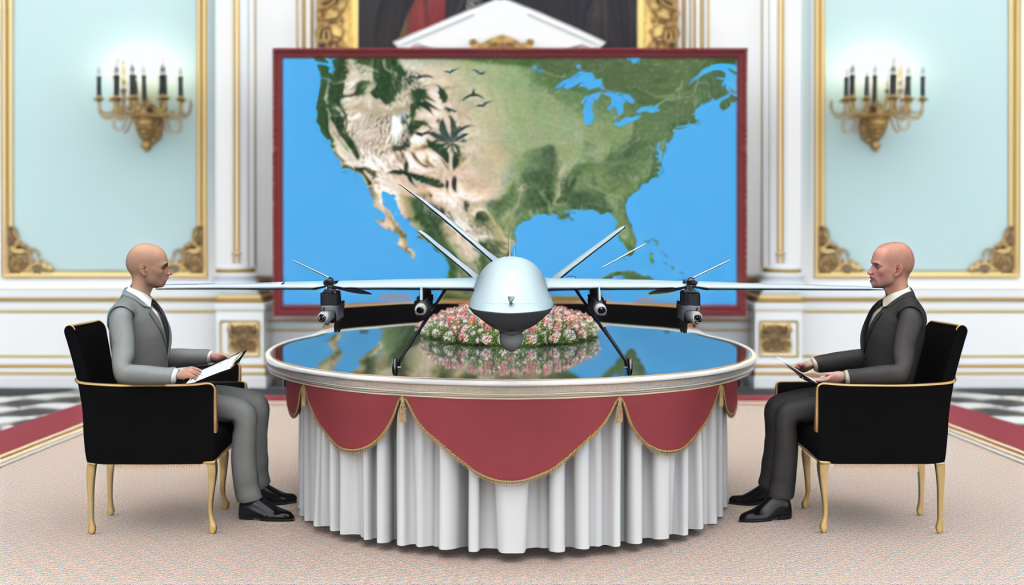A Perspective on Radosław Sikorski’s Views Amid Rising Tensions with Russia
Poland’s Foreign Minister, Radosław Sikorski, recently made headlines with pointed remarks regarding U.S. President Donald Trump and his approach toward Russia, particularly its leader, Vladimir Putin. Sikorski’s comments highlight the growing tensions in Eastern Europe and underscore Poland’s commitment to a robust defense strategy in the face of Russian aggression.
Concerns Over Russian Aggression
In an interview with PBS, Sikorski expressed concerns about the ongoing Russian drone attacks, including one that violated Polish airspace on Sept. 10. He emphasized that the situation is a stark reminder of the challenges facing NATO and the European security landscape. Sikorski stated, “It’s high time that President Trump should see that Putin is mocking him,” signaling his belief that the Kremlin does not wish to engage in meaningful peace negotiations.
The Context of the Drone Attack
The recent violation of Polish airspace serves as a wake-up call for NATO allies. Sikorski pointedly referred to these incidents as indicative of Russia’s broader strategy to undermine Western stability. His remarks imply that diplomatic negotiations have been ineffective in curb Putin’s ambitions, and stronger measures must be taken.
A Call for Coordinated Action
Sikorski articulated a hope that leaders, particularly Trump, will recognize the need for coordinated responses to Russian aggression. He observed that Putin continually escalates military actions rather than seeking peace, citing an increase in drone strikes targeting both Ukraine and NATO nations. “Instead of the ceasefire that was supposed to happen before the Alaska summit… Putin is sending more and more drones,” he noted, suggesting that this pattern of behavior requires a reevaluation of diplomatic strategies.
The Necessity for Stronger Measures
Expressing a desire for peace, Sikorski believes that only assertive actions can influence Putin’s calculations. He remarked that “Putin has been taking advantage of President Trump’s goodwill for too long,” emphasizing a sentiment that resonates with many Eastern European leaders. Sikorski’s stance illustrates Poland’s determination to confront Russian challenges directly, advocating for a proactive rather than reactive approach.
Poland’s Defense Strategy
In light of the recent drone attacks, Sikorski stressed the importance of Poland developing a multi-layered air defense system, drawing lessons from Ukraine’s experiences. This development is seen as vital for safeguarding Polish airspace and ensuring national security in an increasingly hostile environment. Such measures underscore Poland’s proactive stance in fortifying its defenses against potential future aggressions.
Diplomatic Engagement with the U.S.
Sikorski’s statements also highlight the ongoing dialogue between Poland and the U.S. Polish President Karol Nawrocki has already discussed the recent airspace violation with Trump, emphasizing the need for heightened American military presence in the region. This conversation reflects Poland’s reliance on its NATO allies and the importance of maintaining a strong transatlantic alliance to counter Russian threats.
The Broader Implications for Europe
The discourse surrounding Sikorski’s comments is not just limited to Poland. It raises critical questions about the effectiveness of Western diplomatic efforts to engage with Russia. The ongoing conflicts and escalations have made it clear that many Eastern European leaders, including Sikorski, feel a pressing need for stronger collective security measures.
Regional Dynamics and NATO’s Role
As NATO contemplates its role in Eastern Europe, it becomes clear that regional dynamics are rapidly shifting. With Russia’s aggressive posturing and military actions, the necessity for solidarity among NATO allies becomes paramount. Sikorski’s views resonate with a broader call for unity and decisive action against any unilateral actions taken by Russia.
In summary, Radosław Sikorski’s insights provide a window into the complex interplay of diplomacy, military strategy, and regional security concerns in Eastern Europe. His perspectives on U.S.-Russia relations and Poland’s defense strategies reflect not only Poland’s priorities but also the collective aspirations of NATO in the face of ongoing geopolitical challenges.

